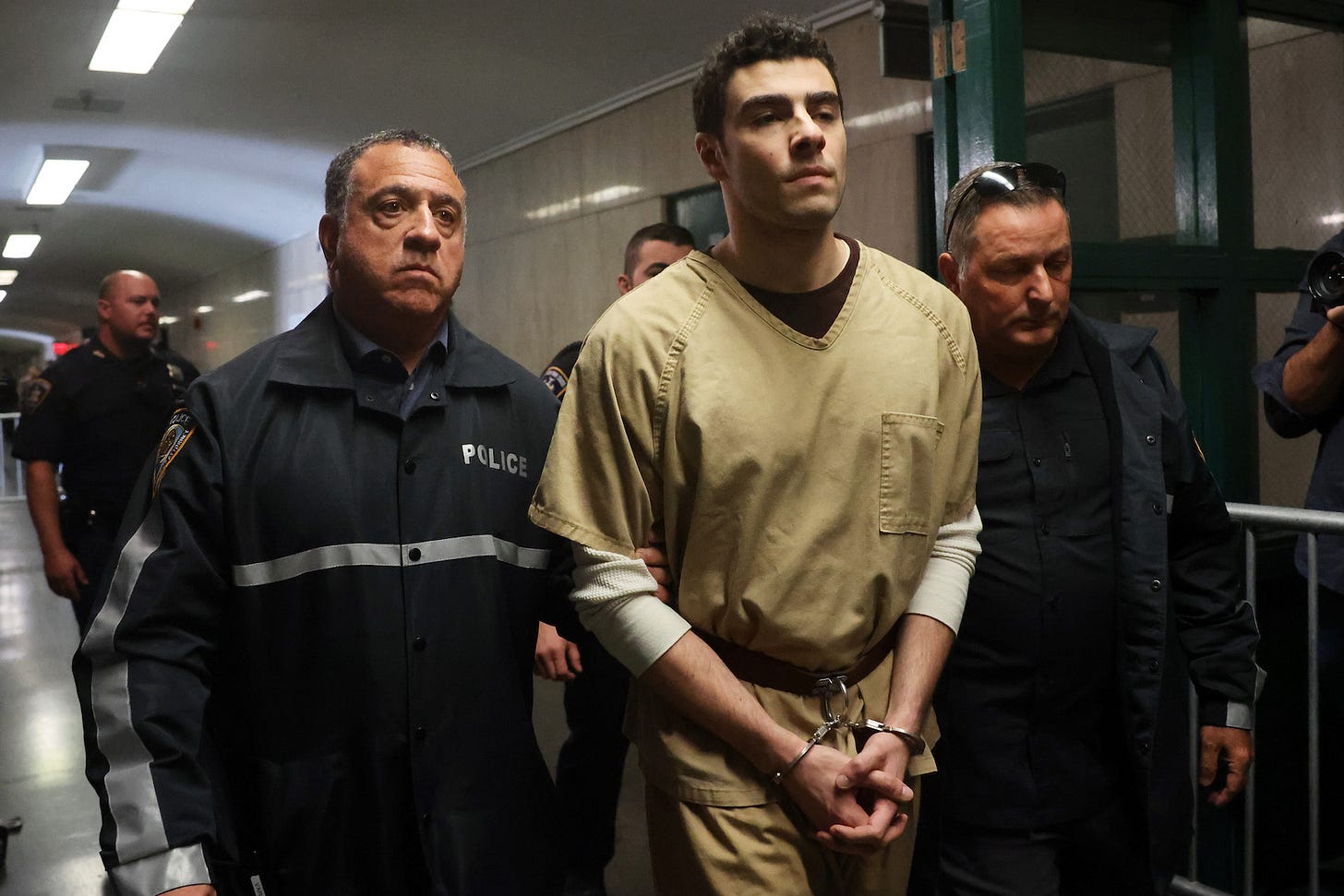Luigi Mangione's terrorism counts tossed
The case is about more than "street crime," but an ideological motive alone isn't terrorism under N.Y. law, a judge found.
Some cases generate a lot of heat and noise: Support journalism that prioritizes information.
A Manhattan judge dismissed terrorism charges against accused UnitedHealthcare CEO assassin Luigi Mangione on Tuesday morning, finding that an alleged ideological motive does not meet that bar under New York law.
“While there is no doubt that the crime at issue here is not ordinary ‘street crime,’ it does not follow that all non-street crimes were meant to be included within the reach of the terrorism statute,” Manhattan Supreme Court Justice Gregory Carro found in a 12-page decision and order.
“Abhorrent and despicable”
When the judge announced the top-line findings of the ruling in court, Mangione’s supporters started to cheer and were quickly silenced by court officers.
Carro, who did not read his written decision aloud in court, wrote that the targeted killing of Brian Thompson was “abhorrent and despicable,” but it did not fit the terrorism cases provided by prosecutors.
“While the People place great emphasis on defendant's ‘ideological’ motive, there is no indication in the statute that a murder committed for ideological reasons (in this case, the defendant's apparent desire to draw attention to what he perceived as inequities or greed within the American health care system), fits within the definition of terrorism,” the ruling states. “The court agrees with the defendant that the People appear to conflate an ideological belief with the intent to intimidate or coerce a civilian population.”
Between his remaining state and federal charges, Mangione still faces the possibility of life imprisonment and death. New York State does not have the death penalty, but capital punishment still exists on the federal level. The remaining state charges include counts of second-degree murder, several counts of criminal possession of a weapon, and possession of a forged instrument — namely, a fake New Jersey driver’s license.
The top federal charge leveled against Mangione, using a firearm to commit murder, carries the possible death penalty.
“Two sovereigns”
In a defeat for Mangione, his attorneys lost their attempt to dismiss or pause the state proceedings until the federal prosecution has completed, arguing that their client would face double jeopardy — or the Manhattan proceedings would taint the jury pool of the higher-stakes federal case.
But Judge Carro found that the long-established legal principle of separate sovereigns allowed for the two proceedings to play out simultaneously.
“This court is not persuaded that proceeding to trial in the state case first will cause the defendant severe prejudice, and the defendant's claim that any state trial testimony will prejudice his federal trial is merely speculative,” Carro wrote.
Quoting Supreme Court precedent in Gamble v. United States, Carro found that “where there are two sovereigns, there are two laws, and two offenses.”
“A crime ‘against two sovereigns constitutes two offenses because each sovereign has an interest to vindicate,’” Carro wrote. “Thus, there is no double jeopardy violation.”
For former Brooklyn prosecutor Julie Rendelman, the judge’s ruling tossing the counts was not surprising.
“There is no indication in the statute that a murder committed for ideological causes fits within the definition of terrorism,” Rendelman said.
Two other high-profile cases involving allegations of political violence also are playing out across the country on Tuesday: a scheduled court appearance for Charlie Kirk’s suspected assassin Tyler Robinson, and an ongoing trial of Ryan Routh, the man accused of attempting to assassinate Donald Trump.
Robinson’s charges are expected to be revealed in Utah by noon Mountain Daylight Time, and legal experts have questioned whether the top count being considered against him, aggravated murder, will hold if pursued.




As an editor and writer I'm careful about how I use words, but the distinctions made in this decision are really helpful. As a feminist I've long believed that rape and sexual abuse (etc.) are, in effect, terrorism against women, but I also know that U.S. law doesn't see it that way. So thank you for the reminder.
Or to say it better, if they did consider it terrorism, then we would have to consider the many right-wing "activists" murdering children in schools to be acts of terrorism too. While I applaud the court for not holding him to a double standard, the problem of domestic Scalia 2nd Amendment-fueled terrorism is, in fact, real, in my view. So I honestly don't know how I feel about this without addressing the core issue that hangs in the balance.